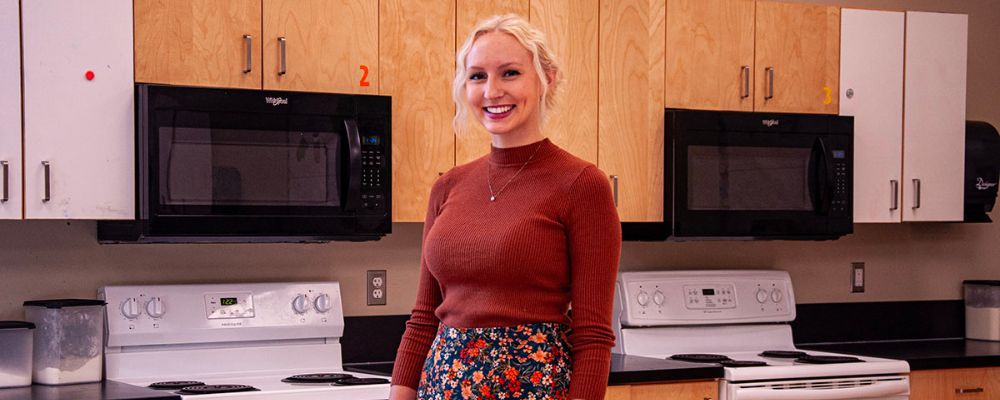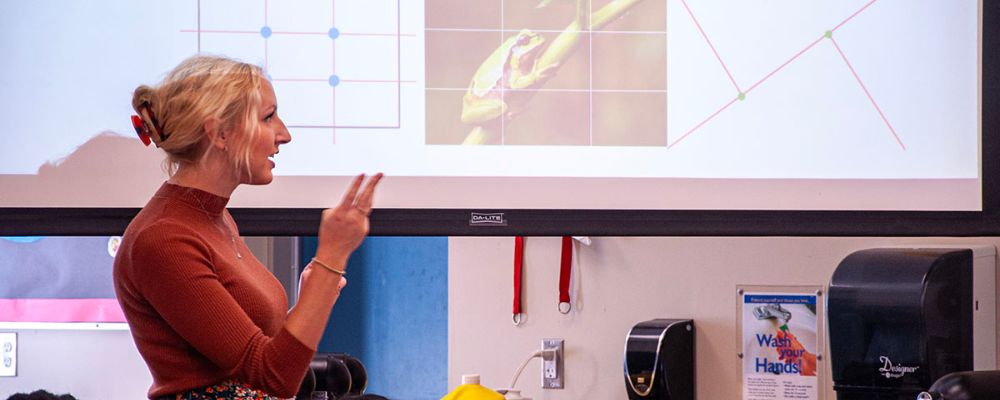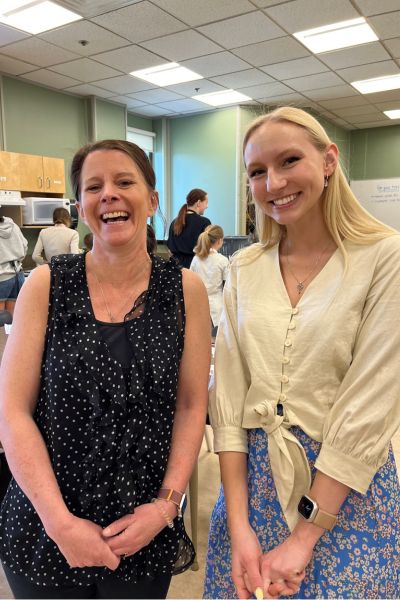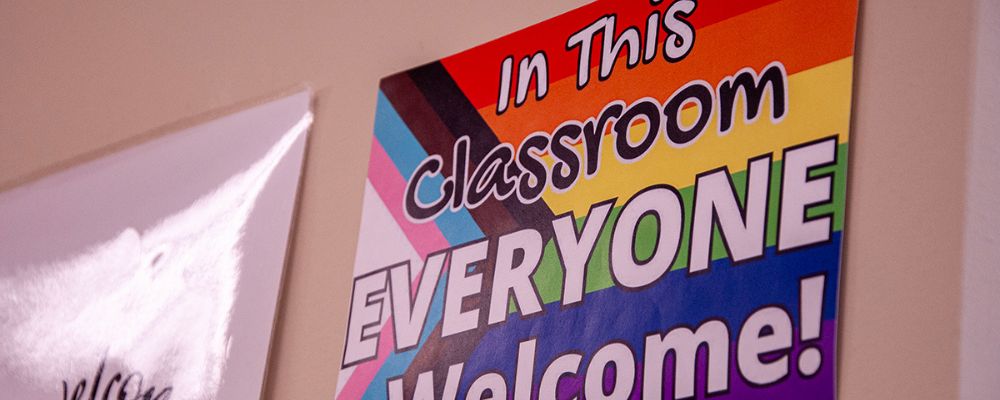
There is a bustle of activity in the Food Studies classroom as students pile in. Serena Slonowski, B.Sc. ’21, B.Ed. ’23, starts her class in circle, giving each student an opportunity to connect as they share their thoughts on the question of the day.
She outlines the day’s agenda and activity where students would be making cut-out sugar cookies with their choice of icing type and decorations. She then dives into the lesson, but perhaps unexpectedly, she doesn’t immediately share the recipe. Instead, she begins with talking about the rule of thirds, and demonstrating how art can intersect with food — offering the students an opportunity to make connections with other subjects and interests.
“The most prominent benefit for this class is that it’s a life skill,” says Slonowski. “Feeding yourself and knowing how to use what’s in your fridge is important. But there is so much more to it. We can see how the core competencies are being reflected almost every class.
Students are thinking critically and creatively. They cook together and need to collaborate and communicate. They share a meal together and form relationships. It may be that there aren’t their close friends in the class so they are learning to have small talk and be outside of their comfort zones.”

Slonowski hadn’t intended on becoming a Food Studies teacher. It was during her final practicum where in an effort to challenge herself, she requested to teach new subjects outside of her formal background.
“I wanted something that would make me step outside my comfort zone, because I thought if there was ever an opportunity to try to really push myself, it would be when I had the support from my field advisor and mentor teachers,” says Slonowski.
In addition to foods, she was also teaching Environmental Science in Action. With some encouragement from her field advisor, she found herself reflecting on her two classes and how differently she was approaching them.
“I found with my science class, we were often outside on the land, or with community partners. If we were in the classroom, we were often sitting in circle in reflection or listening to a guest speaker. That’s when I started to think, why can’t we have these types of experiences, like going on a field trip, in a foods class?”

Kathy Ross (left) and Serena Slonowski (right)
While she didn’t have an opportunity to pursue those ideas during her final internship, following the completion of her B.Ed., she received a contract position teaching foods. Shortly after starting the position, she attended a Co-Curricular-Making event where she made a connection with an elementary school principal, Wendy Briggs, that led her to an opportunity to collaborate with a teacher in Peachland, Kathy Ross. The pair brought their classes together for nature cooking buddies, where over the course of five visits they focused on creating outdoor learning experiences that could then be brought into the kitchen.
“We would have activities like a sensory observation, where we would talk about what we were seeing or smelling, and then the students brought those observations into their spring cookie design challenge. We also learned about indigenous plants and discussed their traditional uses, and students participated in a scavenger hunt to find the plants. On our last day, we harvested and experimented with cooking dandelions and pine needles,” says Slonowski.
Driven by her passion for experiential learning, Slonowski continued to seek opportunities to empower her students learning. With her next cohort, on their first day, Slonowski walked them through the curriculum and together they generated ideas.
“I prompted them with questions such as what would you like to learn, who can we learn from and what can we do,” she says. “They came up with a list of activities and field trips, and based on their ideas, I organized visits to three local organizations including Bulk Barn, Paynter’s Fruit Market and Helen’s Acres Community Farm.”

As Slonowski continues with her teaching journey, she remains committed to fostering a positive and inclusive learning environment where students feel empowered to take ownership of their learning. By encouraging creativity, risk-taking, and reflection, she instils in her students a sense of confidence and resilience that she hopes will extend beyond the kitchen.
“Their favourite days, the days when they come in to class and are the most excited, are always when they get to choose what they’re making, and see themselves reflected in the recipe or lesson,” says Slonowski. “It’s important to me to create a space where students feel safe to make mistakes and guiding them through those challenges so they can learn from them.”